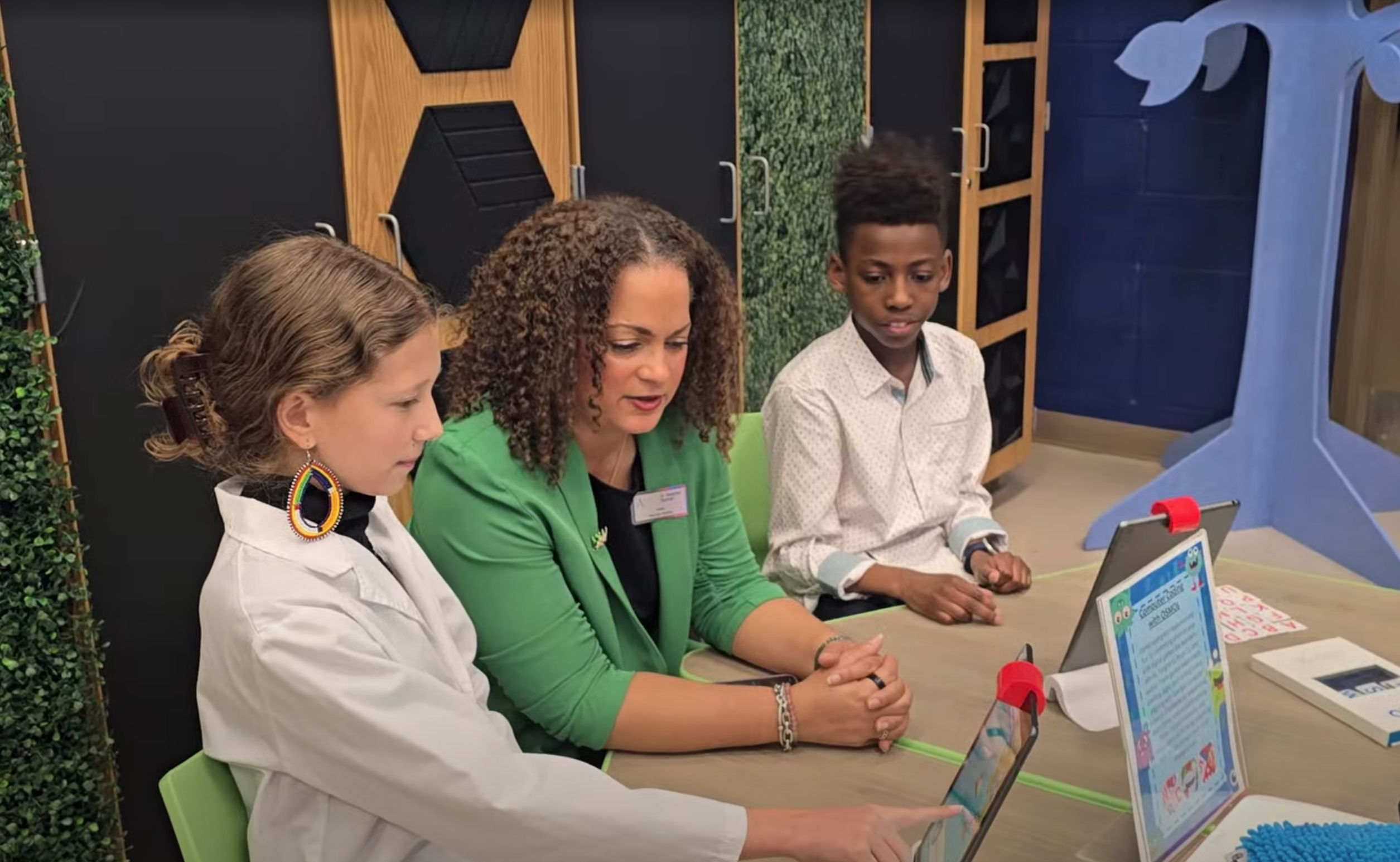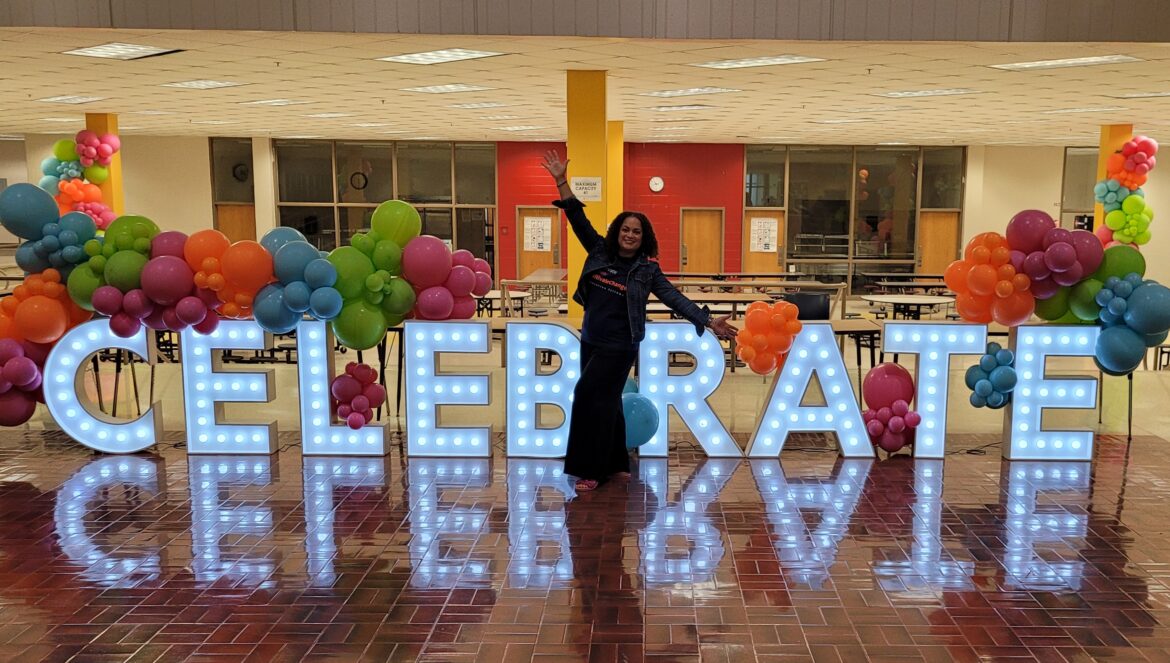A big element of growing a solid tech program is to create the buzz of excitement that draws in other learners. With 49,740 students across 87 learning sites, Atlantic Public Schools (APS) excels at finding ways to let students show off their hard work and talents.
“We just wrapped up our 13th Annual Technology and Innovation Competition, formerly known as Tech Fair,” says Dr. Natasha Rachell, who was recently recognized with the Innovative Director of Instructional Technology Award at the Southeast Regional Leadership Summit, part of the Tech & Learning’s Innovative Leader Awards. “This allows our students, Grade 3-12, to showcase the amazing technology and innovation projects that they’ve been working on throughout the year.”
Rachell shares her other impressive programs, tech partnerships, and four key pieces of advice for educators trying to juggle tech and learning in style.
Let Students Shine

Knowing that APS esports at the high school level was already up and running through the Georgia High School Association, Rachell created her own Pathway Program Initiative to prepare students to enter that arena feeling strong, confident, and experienced.
“It’s viewed just like football or basketball,” she says. “We saw the need to make sure that our students were prepared for that level, so we established an elementary and middle school pathway program. We’ve been able to partner with Elite Gaming Live to bring this to life for them. We’ve seen great success including drops in discipline and increases in attendance.”
Creative minds also find a home for exploring their gifts through tech at APS, as the district prepares to roll out their Second Annual Student Film Festival in May.
“Students are able to use tech to create film projects that are in the process of being judged as we speak,” says Rachell. “We’ll have a red carpet-style event to announce the winners. It was so popular we have actually doubled our numbers from last year.”
There’s No “I” in Tech

Partnerships with tech companies not only provide necessary hardware and software, but invaluable resources crucial during these times of financial uncertainty and budget constraints.
“We have partnered with Verizon to bring Verizon Innovative Learning Schools (VILS) labs to almost all of our middle schools,” says Rachell. “That VILS partnership built amazing STEM labs where students can work, collaborate, create, innovate together. Sphero Balls, 3D printers, Glowforge machines, Oculus headsets—anything and everything you could imagine are in these labs, including a lab mentor. Those labs are $450,000 each and 100% grant funded.”
Other exciting partnerships include Canva, Magic School, Grow with Google Career Certificates for highschoolers considering entrepreneurship, ClassLink, My Backpack, Minecraft Level UP program, and Brisk, among others.
“We’re a charter district, so we believe in flexibility and autonomy,” says Rachell. “Our principals and teachers have access to whatever they want. Data drives tough budget decisions, but also helps tell a compelling story for grants. We’ve seen a lot of success building partnerships and relationships with vendors and our ed tech friends to bring awesomeness to our students. My mom always said ‘if you don’t ask, you don’t get.’ We always ask and then we hope. At the end of the day, everything we do is for students and their futures.”
4 Tips to Find Balance with Ambitious Tech Programs
- 1. Tie everything to an instructional outcome. “Nothing we do is just for the sake of doing it,” says Rachell. “When people hear ‘esports,’ they think kids are just gaming all day or playing Minecraft. Our esports Pathway Program students are engaging in STEM career exploration. Before they even lay hands on a controller, they are going through a curriculum of content exploration to learn about game design, video production, game production—behind the scenes opportunities for their future. Our mission at Atlanta Public Schools is preparing our students for college, career and life.”
- 2. Create a “Principal 360 Report.” The Department of Instructional Technology, the Atlanta Virtual Academy, and the media services department all contribute to a monthly report for principals to see at a glance the support that the division has provided to their teachers, media specialists, administrators, and students or administrators in their school. These impact reports are used for programs lacking hard data to show what Rachell’s team hopes to accomplish.
- 3. Empower and delegate. “I am always delegating and empowering my team to come up with great ideas, to implement the concept, to devise plans for the rollout,” says Rachell. “It’s definitely a team effort. This helps to build their capacity and helps make them experts, too. Everyone owns a piece— we’re all invested because we all want to see it work and don’t want to see it fail.”
- 4. Capture data to tell the story. Rachell’s team has been extremely diligent in capturing data, whether it’s quantitative or qualitative to tell the story of their work. “Our edtech specialists operate on a request and feedback system,” she says. “Teachers are able to request their services, they’re able to offer feedback which tells the story of what is happening in the schools. If a principal ever says, ‘What is such and such doing in my school?’ We have that data to lean on to measure the impact.”

- Classlink
- Canva
- Formative
- Securly
- Grow with Google Career Certificates
- Google for Education
- Microsoft for Education
- Minecraft for Education
- Apple Education
- Verizon Innovative Learning Schools
- zSpace
- Book Creator
- Common Sense Media
- MagicSchool AI
- Ciena Solutions Challenge
- Kick Up
- Paper
- Adobe
- Brisk
- Remind


